One Health, Many Voices: Insights from the 2023 East Africa Symposium
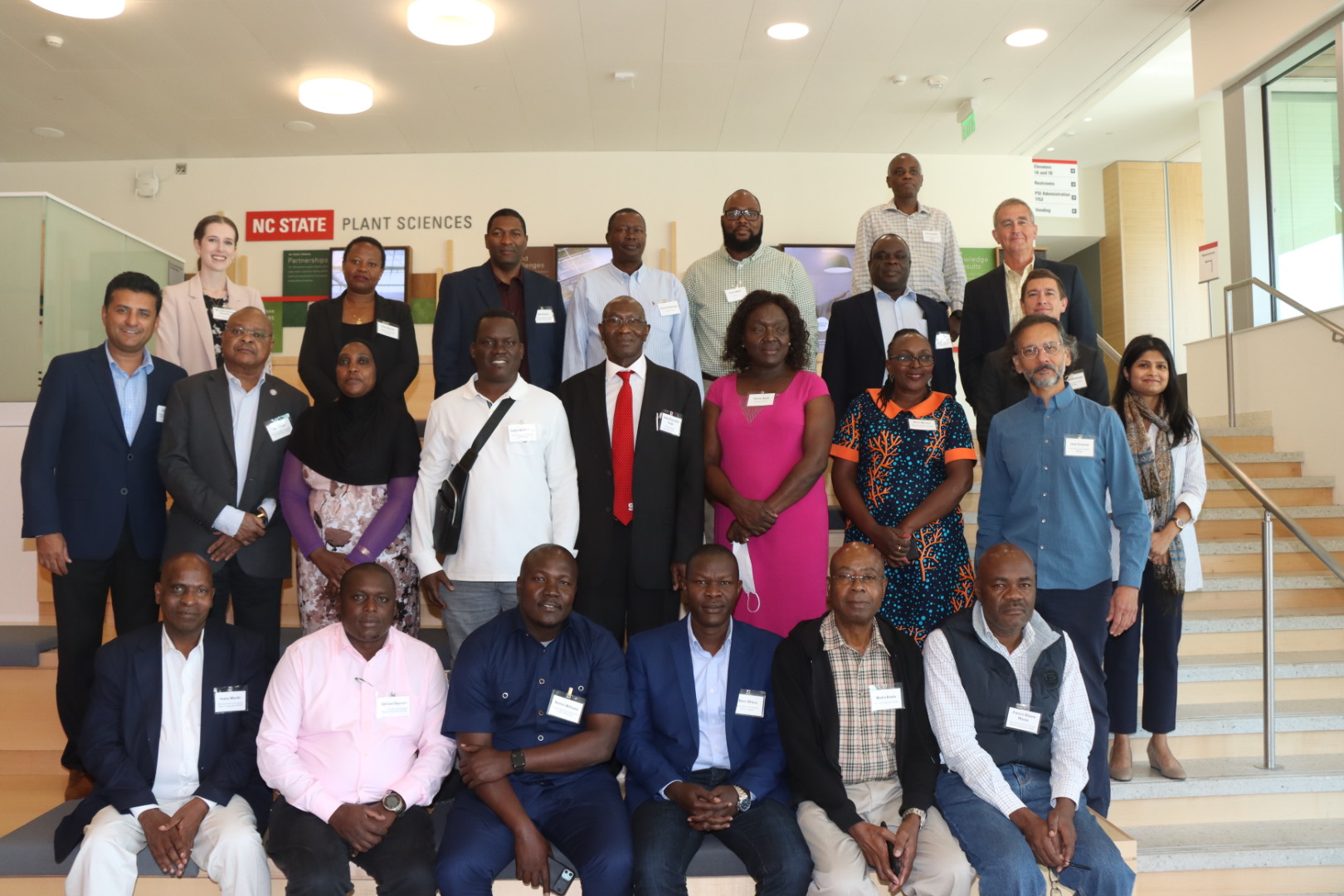
As the world becomes increasingly interconnected and globalized, the necessity for cultivation of collaborative efforts and critical conversations to address complex global challenges also grows. Hosted and organized by the Global One Health Academy and the College of Agriculture and Life Sciences (CALS) International Programs, “Building Partnerships for Health and Sustainable Agricultural Development in East Africa” (i.e., East Africa Symposium) provided a unique platform for the exchange of valuable knowledge, insightful presentations, and meaningful networking opportunities. The first event of its kind at NC State, this 3-day symposium brought together key voices and stakeholders from Kenya, Malawi, Uganda, and Tanzania to forge impactful research partnerships with faculty from NC State and the surrounding Research Triangle Park region.
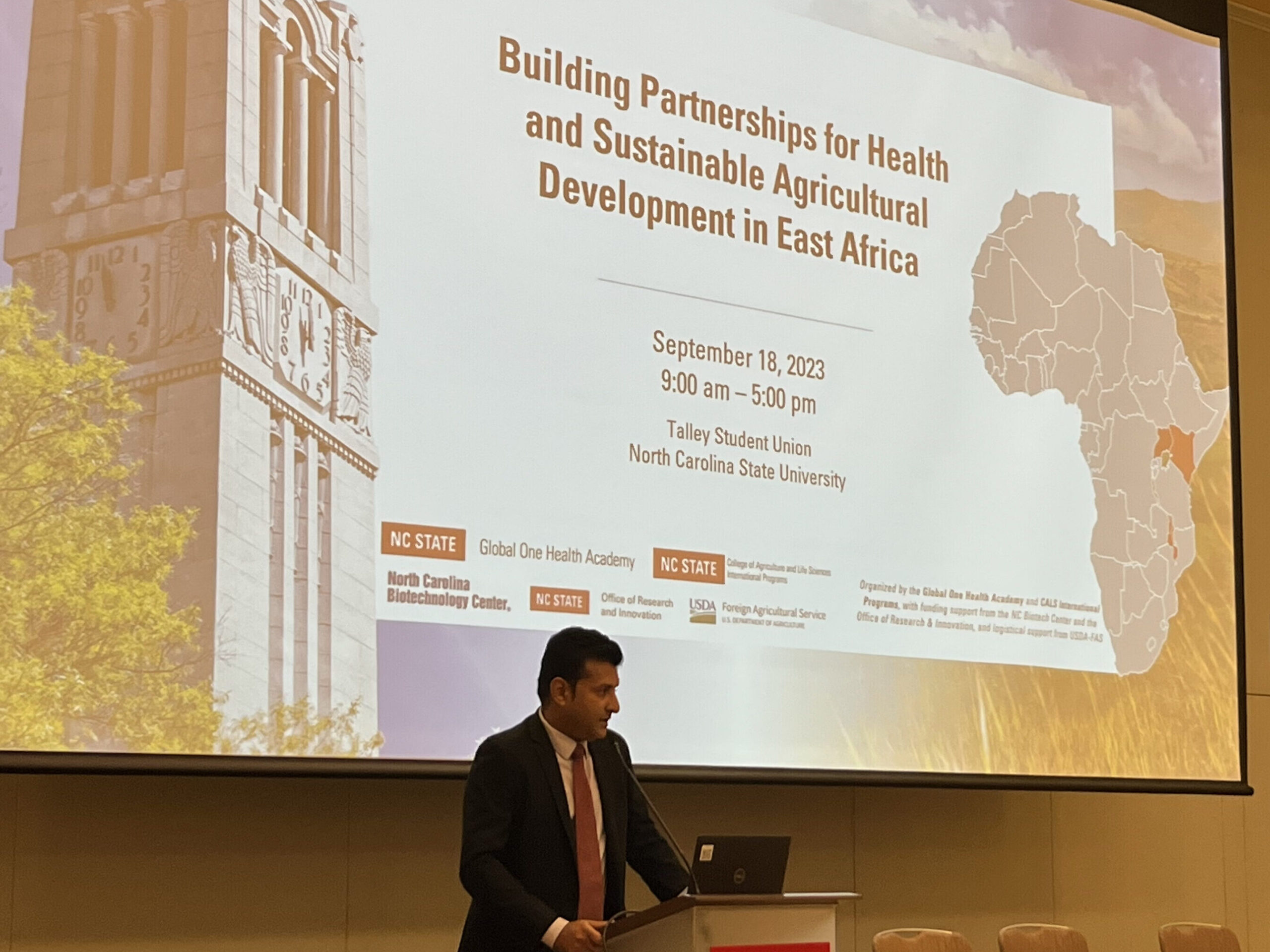
Setting the Stage for Research Integrating Agriculture, Health, and Sustainability
Chancellor Randy Woodson and Provost Warwick Arden welcomed more than 175 attendees to the first day of the East Africa Symposium. Chancellor Woodson spoke about the land grant mission of NC State, and its commitment to agriculture in the state and beyond. He remarked on the leading role that NC State is playing in fostering innovative partnerships, cutting-edge technologies and critical research that allow us to meet the grand challenges facing our state, country and world.
Over the course of the day, sixteen invited speakers from Kenya, Malawi, Uganda, and Tanzania shared research talks on the value of international and national partnerships for sustainable development; systems approaches to sustainability in agriculture, horticulture, and animal production; and considerations for integrating One Health perspectives and community wellbeing into rural development. In addition to presentations from East African researchers, professionals, and dignitaries, representatives from the Bill and Melinda Gates Foundation, USDA National Institute of Food and Agriculture, USAID, USDA Foreign Agricultural Service, and the NC Global Health Alliance shared their insights on funding opportunities and priorities for sustainable global development.
Dr. Chimimba David Phiri, Director and Food & Agriculture Organization (FAO) Subregional Coordinator for Eastern Africa and FAO representative to the African Union, delivered a keynote presentation on the importance of sustainable partnerships for agrifood transformation in East Africa. He talked about the challenges related to food insecurity, hunger, public health infrastructure, safe water, and climate change in Africa. He stressed on the importance of creating strategic and long-lasting partnerships to address these challenges working as part of interdisciplinary teams. Dr. Phiri and the other diverse invited speakers shed light on the current landscape of agriculture and sustainable development in East Africa. They also highlighted the incredible potential of the region as well as calls for collective action to foster partnerships for global health and wellbeing.
Provost Arden remarked, “There is an urgent need for integrated research and decision-making across multiple sectors to ensure good nutrition, strengthen food and water security and sanitation, support climate action, and maintain biodiversity for the greater global good. … International partnerships are critical to addressing global challenges, and represent a key priority for the Global One Health Academy and for NC State. This symposium is a bold step forward in strengthening existing international partnerships and developing new ones with our East African colleagues.”
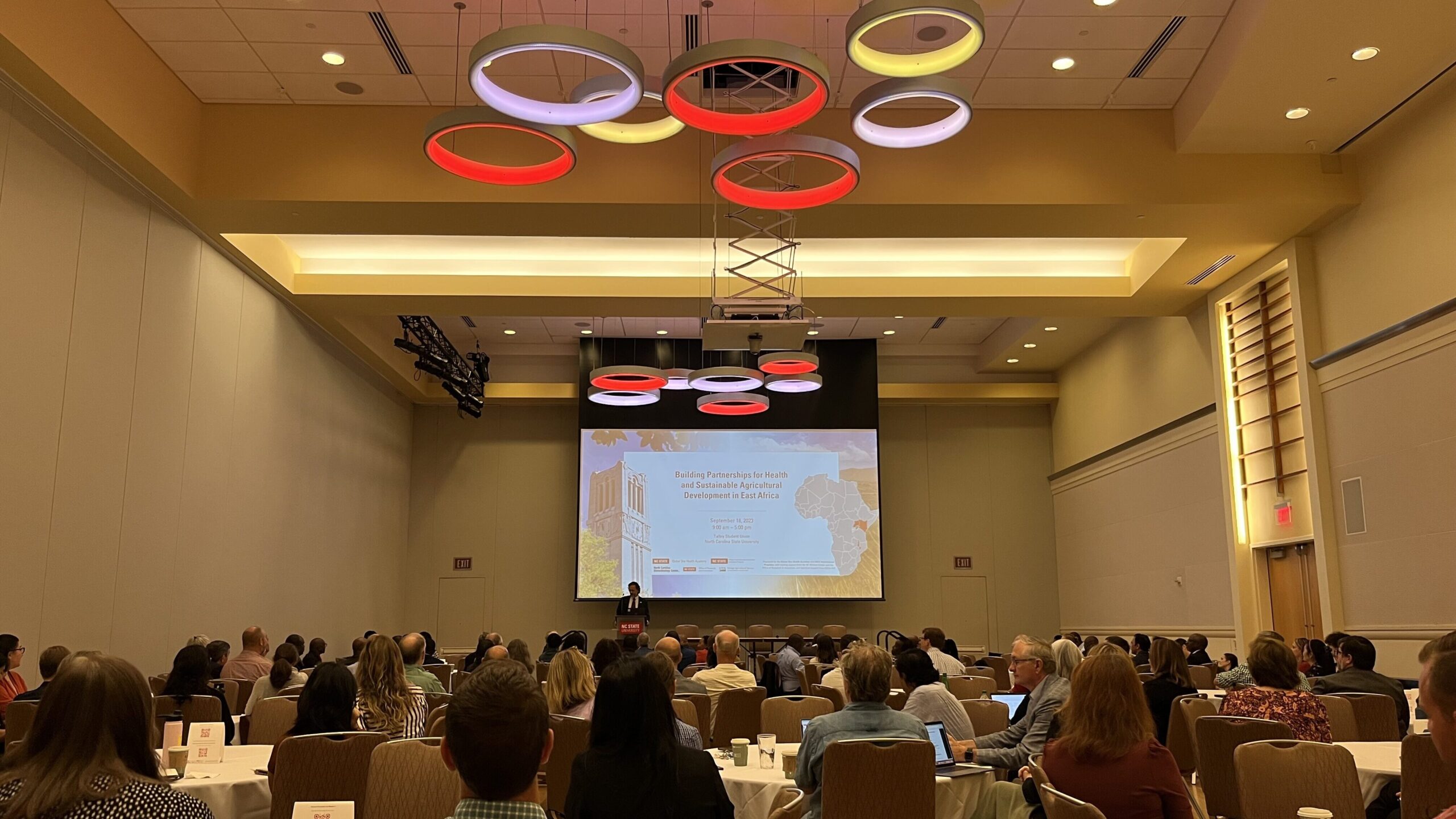
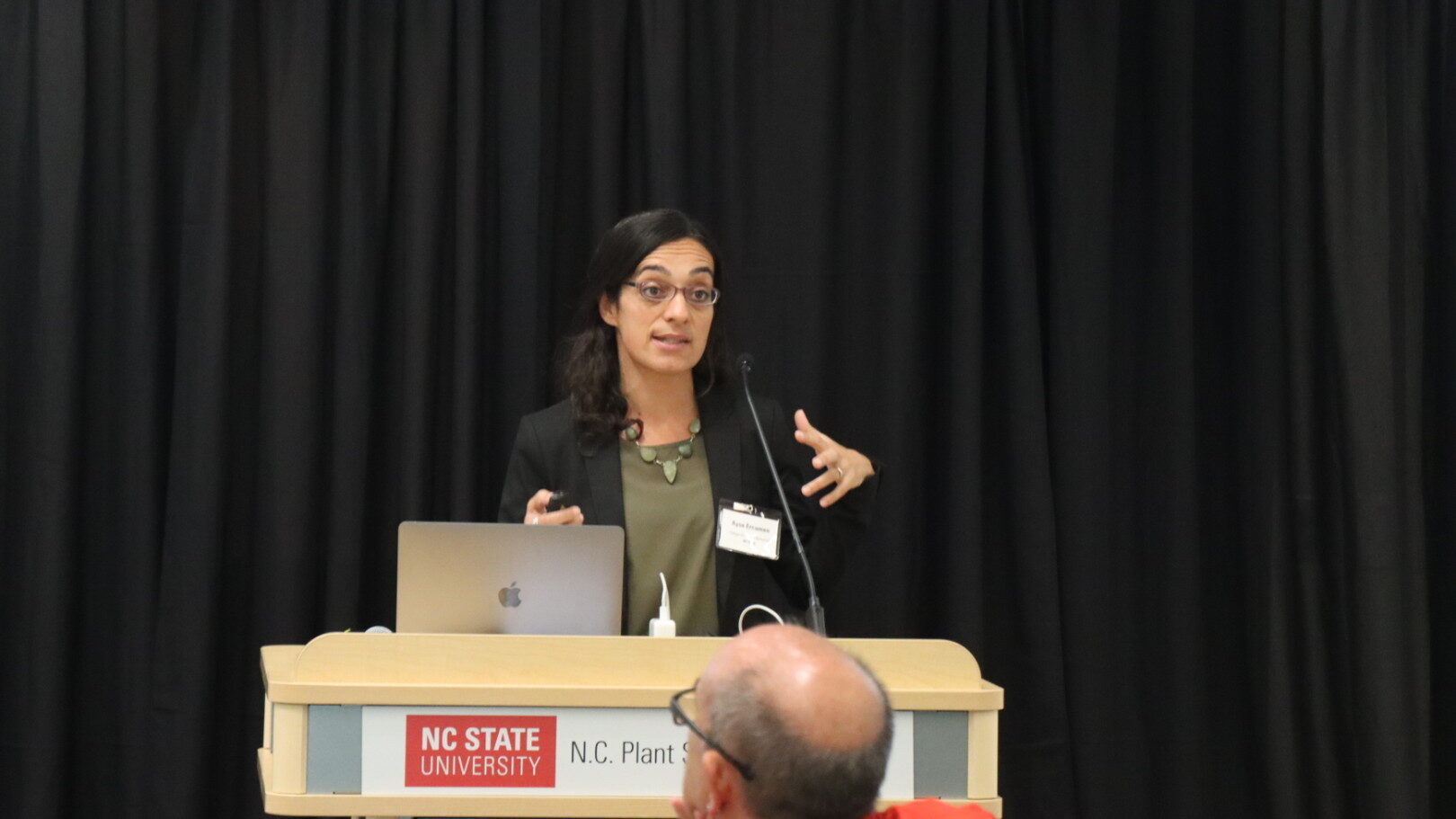
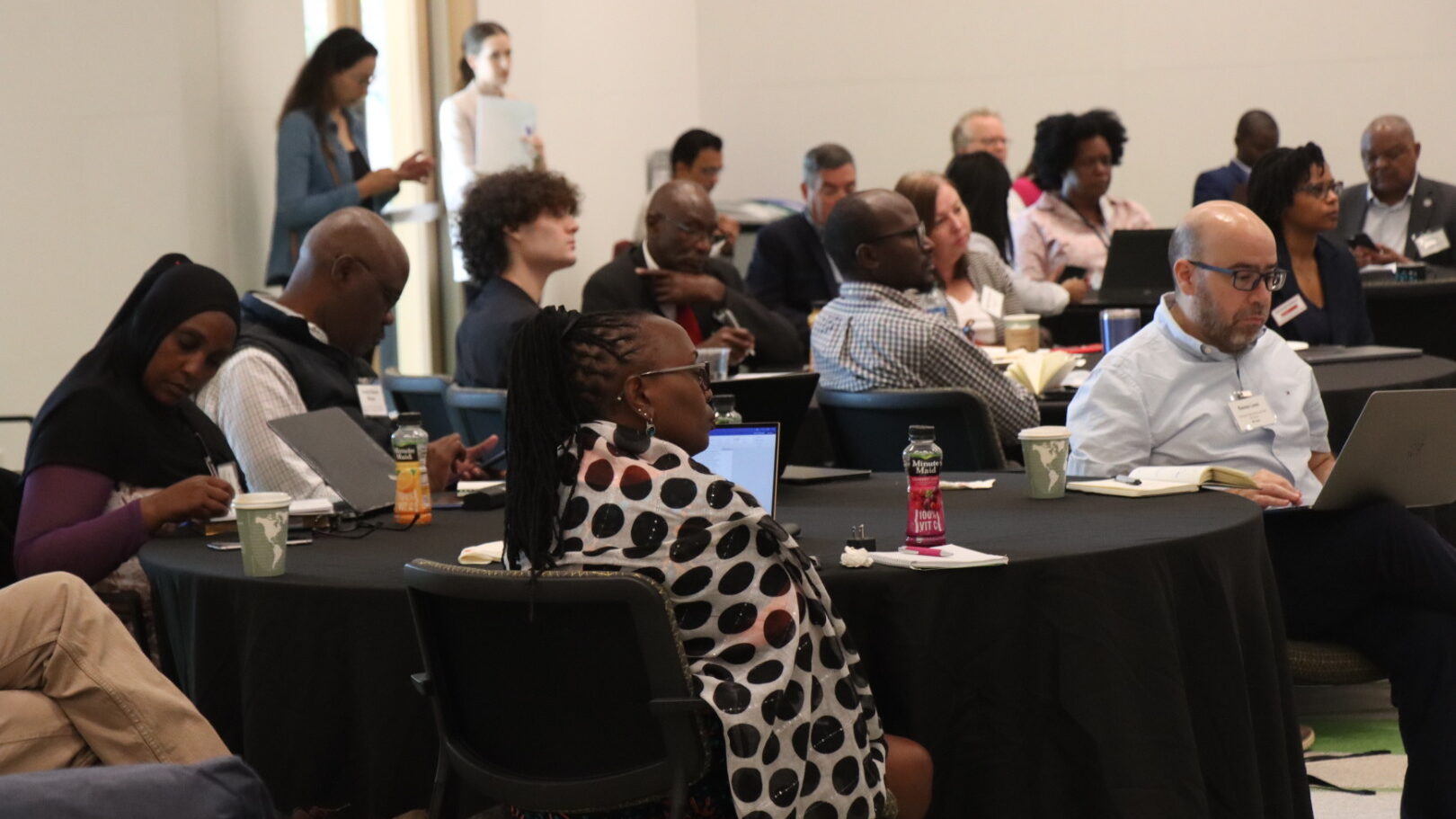
Charting a Course for Sustainable and Collaborative Action
The second day of the East Africa Symposium was characterized by collaborative workshops and interactive discussions, with the goal of developing a foundation for future research collaborations on sustainable agricultural development and community wellbeing. Select NC State faculty members presented high-level overviews of their research on topics including plant pests and pathogens, irrigation, sustainable packaging, WaSH (water, sanitation, and hygiene), and technology use for health behavior change. These presentations provided a baseline for some of the relevant expertise and research interests that NC State can contribute to future partnerships. To highlight the world-class research infrastructure at NC State, the East African guests also participated in laboratory and field tours of various campus facilities, including the Plant Sciences Initiative (PSI), the Biomanufacturing Training and Education Center (BTEC), and the Lake Wheeler Road Field Laboratory.
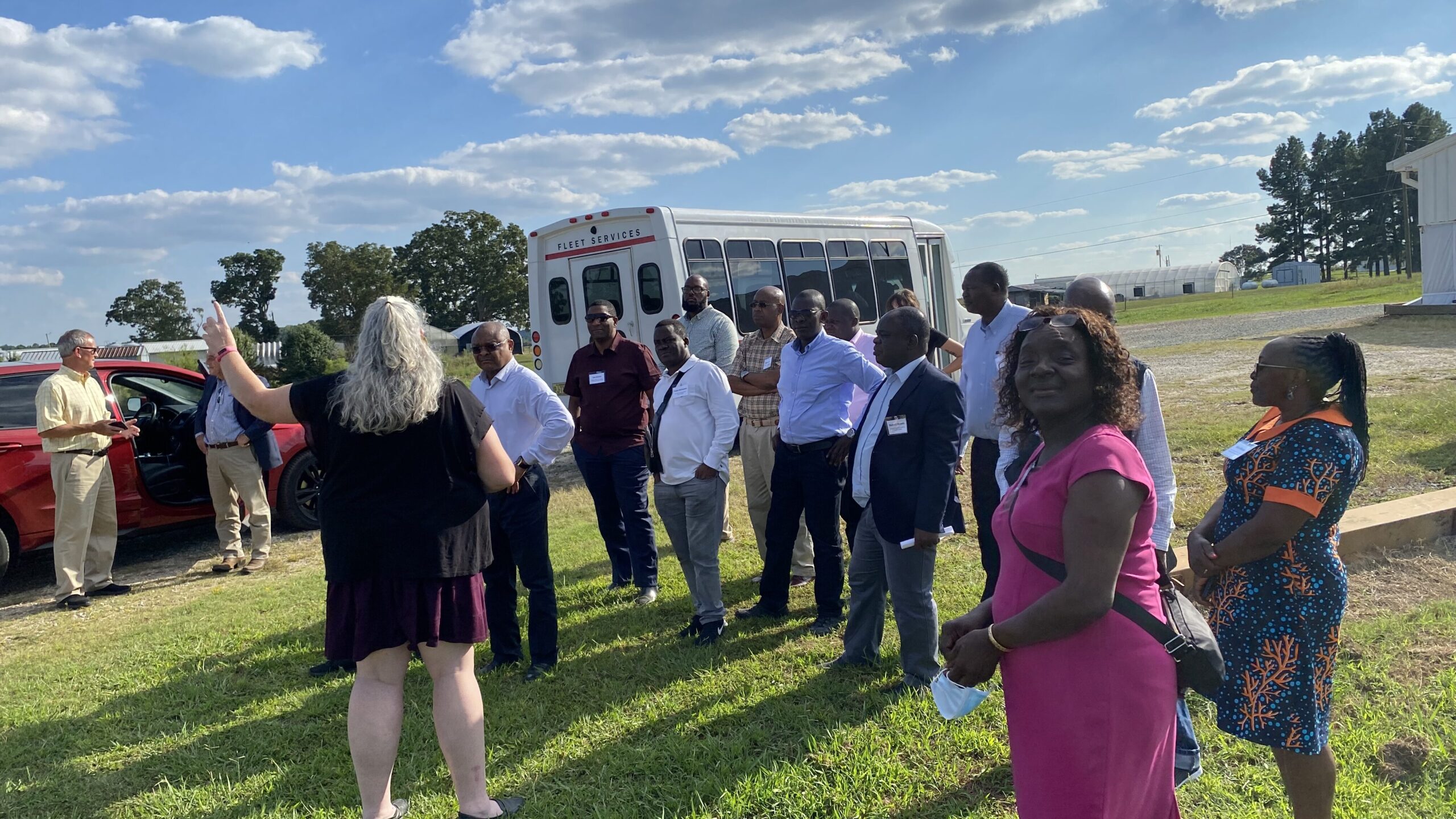
Leveraging the bi-directional knowledge exchange of the first two days of the symposium, the final day was focused on creating actionable agendas and collaborative future plans for international partnerships between NC State and the East African partner institutions. Participants synthesized and articulated the ideas, insights, and innovations developed over the course of the three-day event through roundtable discussions. Emergent themes for future partnerships in One Health and agricultural development included: 1) animal production, 2) climate change and sustainability, 3) crop and horticulture production systems, 4) pests and plant diseases, 5) value added production, 6) water and irrigation, and 7) water, sanitation, and hygiene. In pursuit of these research partnerships, groups sketched out roadmaps for collaboration, including plans to publish white papers, prioritize faculty and student exchanges, and apply for international funding opportunities.
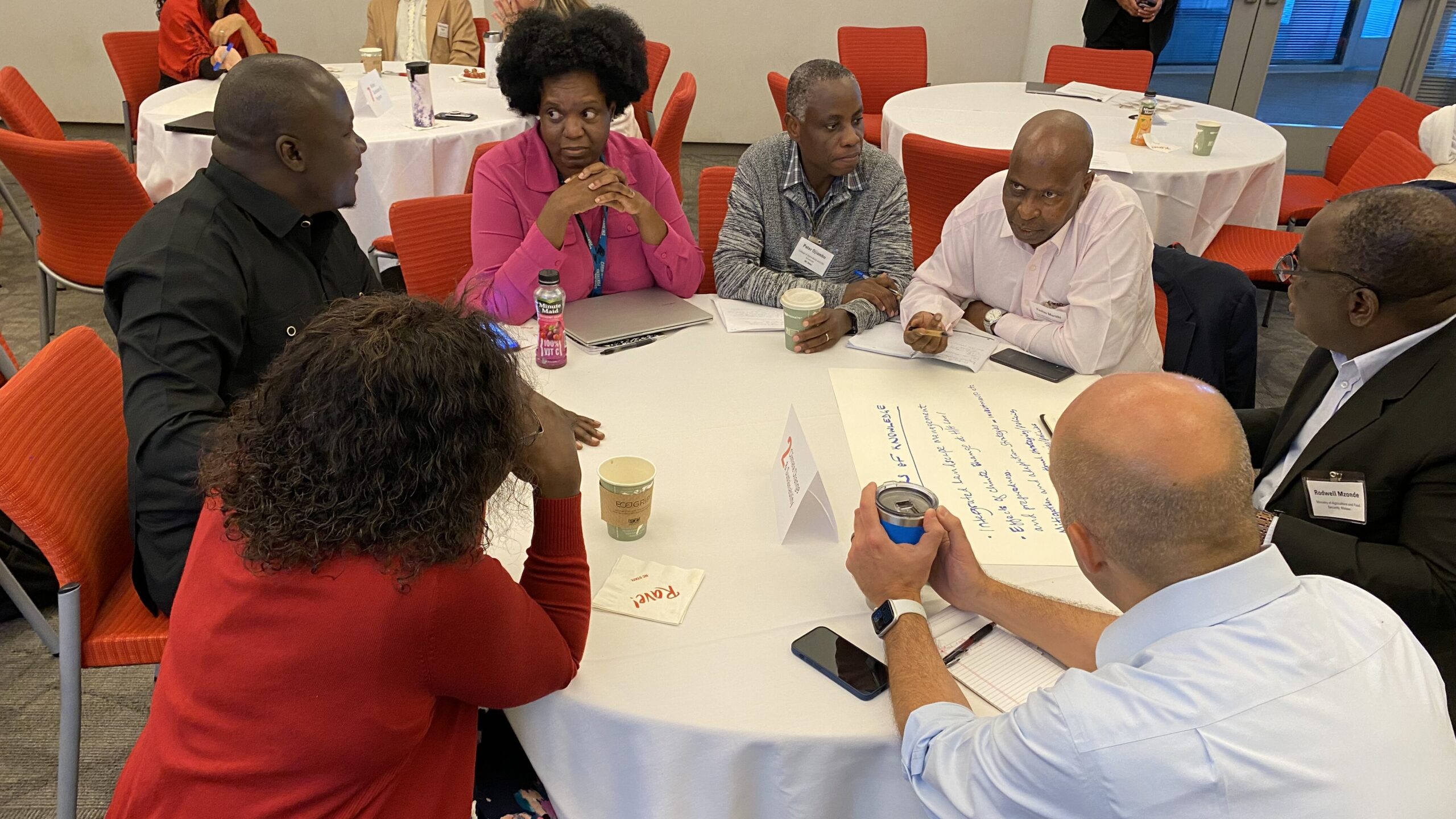
Throughout the discussion groups, a cross-cutting idea was the need for mechanisms to disseminate and apply research knowledge in East Africa, similar to NC State’s extension program. “We need to connect the counties in North Carolina to communities in Africa in the villages so we can understand the common challenges we face, the common solutions that are being used and learn from each other as to move forward,” said Dr. Festus Murithi, director of socioeconomics and policy development at the Kenya Agricultural and Livestock Research Organization (KALRO).
When we are working on international rural development, very soon we will realize that solving one problem or two doesn’t really make a difference, [so] we need to have a holistic and systematic approach to really have an impact. This symposium allowed us to have that conversation with scientists and practitioners of different disciplines proposing interdisciplinary and inter-institutional solutions. I feel optimistic about what is coming next. — Dr. José Cisneros, Director of CALS-IP
Another cross-cutting idea was the need for interdisciplinary perspectives to do novel research that will address the complex and interconnected issues of agriculture, nutrition, sustainability, and health and wellbeing. “The Global One Health Academy creates a critical nexus for research that integrates across disciplinary boundaries to holistically improve human, plant, animal, and environmental health. The One Health framework can provide a new lens for thinking about agricultural development, particularly in light of climate change, a growing human population, and other broad challenges that we face as a global community,” says Dr. Meredith Spence Beaulieu, Global One Health Academy Program Manager.
Final reflections from Global One Health Academy Executive Director, Dr. Sid Thakur —
The East Africa Symposium is an example of bold initiatives that the GOHA has embarked upon. Our symposium vision to connect applied research under the One Health umbrella to agriculture, extension, and higher education for sustainable economic development and community wellbeing fit right in the GOHA mission of engaging the NC State community in improving the health of plants, animals, biodiversity, and human society in North Carolina and beyond. I am glad that through this symposium we were able to highlight GOHA’s efforts to embrace diverse perspectives to tackle global challenges and create new partnerships. I am hopeful that by bringing together researchers from various backgrounds across NC State and our partners from East Africa we were able to catalyze partnerships that will identify new ways to work together to solve global challenges. — Dr. Sid Thakur, GOHA Executive Director
The East Africa Symposium received support from the NC Biotechnology Center and the NC State University Office of Research & Innovation, as well as logistical assistance from USDA-FAS.
You can read more about the symposium and its connection to the NC State Connecting Research, Education, and Outreach (CREdO) initiative here.
- Categories: